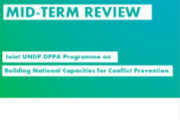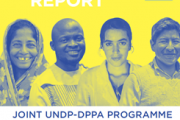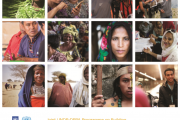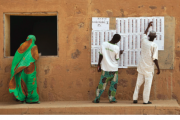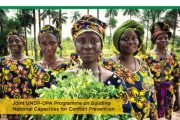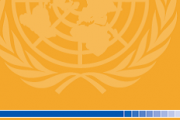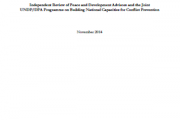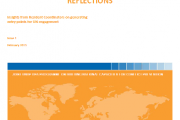Peace and Development Advisors
Working at the sub-regional level
Recognizing the regional nature of many conflicts, the Joint UNDP-DPA Programme also deploys PDAs with multi-country and sub-regional scope, including, in Cameroon, the Caribbean, Great Lakes, the Pacific and the South Caucasus.
The Caribbean
The regional PDA in the Caribbean provides expert advice and assistance to the UN System in the Caribbean as well as to national and regional counterparts to address the challenges of crime and insecurity in the region. The primary focus of the PDA's work has been to strengthen regional and national capacity for enhancing citizen security, justice and conflict prevention. The PDA has worked with and provided technical advice to the Caribbean Community (CARICOM), a regional group of 15 Caribbean nations mandated to promote economic integration among members, and the CARICOM Implementing Agency for Crime and Security (IMPACS). The main achievement of this collaboration to-date has been the development of the first regional Counter-Terrorism Strategy, which was approved by CARICOM Heads of Government in February 2018, and the promotion of a more proactive and preventive approach to this global challenge in the regional context of the Caribbean. This support to IMPACS was provided in partnership with the UN Counter-Terrorism Implementation Task Force and through the undertaking of over 15 consultations with interlocutors across the Caribbean and the range of Security and Law Enforcement Standing Committees of CARICOM.
The Pacific
Recognizing that the Pacific is a region facing multi-dimensional challenges which affect the regional peace and security environment, the role of the PDA in the Pacific was expanded in 2016 to cover the sub-region. As part of this engagement, the PDA contributed to the UN's efforts to strengthen its partnership with the Pacific Islands Forum (PIF), a leading regional organization composed of a political grouping of 16 independent and self-governing states, to better align efforts in the region to prevent and address the risks to peace and security. The PDA initiated a dialogue with key partners of the PIF on electoral support and conflict prevention. Recognizing that tensions could grow over the role of the private security industry in providing security to natural resource exploitation, the PDA, jointly with the PIF and UNDP, started a mapping of the private security industry in the Pacific. This mapping was acknowledged by the Pacific Islands Forum Foreign and Security Committee, which encouraged PIF and UNDP to build on this cooperation in 2017.
South Caucasus
In 2017, the Joint Programme successfully piloted a regional PDA Team that serves as an innovative approach to enhance regional cooperation. In the South Caucasus the regional PDA based in Georgia works closely with a team of three national PDAs in Armenia, Azerbaijan and Georgia to provide more coordinated support to the Resident Coordinators and UN Country Teams to help develop conflict-sensitive programming and to promote greater sustainable development- focused engagement and dialogue in the sub-region. The team also assisted with efforts to strengthen regional coordination and cooperation focusing on contingency planning and shared analysis to help mitigate potential conflict-related risks and to ensure effective joint UN response efforts.
“National PDAs are often directly affected by the conflict they work on. In my
case this has motivated me to find new ways, when almost everyone thinks
it’s a deadlock. As someone with local knowledge and understanding, I
feel even more responsible to contribute to prevention and peacebuilding
in my country.”–Ms. Naira Sultanyan, PDA Armenia
“The regional-national PDA set-up magnified my ability to deliver a nuanced analysis and generate high quality advice on UN positioning and peacebuilding programming. My experiences with promoting peacebuilding agenda in a sub-region with complex legacy of protracted and still unresolved conflicts would be quite frustrating without NPDAs.”
–Mr. Oleh Protsyk, Regional PDA South Caucasus

